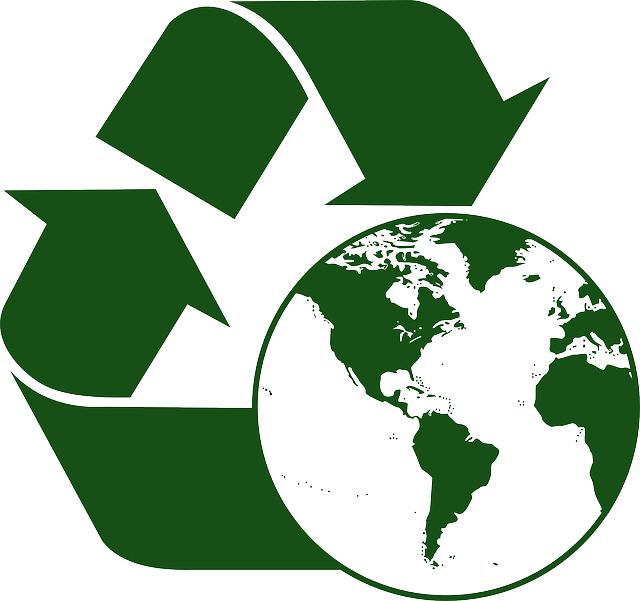- Introduction
- What Are Community Recycling Hubs?
- Why Are They Important?
- How To Start a Recycling Hub
- Challenges and Solutions
- Conclusion
- FAQs
- References
Introduction
Community recycling hubs are incredibly effective at addressing widespread waste issues, encouraging sustainability efforts, and bringing local communities together to take action. This blog post will explore what community recycling hubs are, why they matter, how you can start one in your area, and some challenges and their potential solutions. We'll also answer some frequently asked questions (FAQs).
By the end of this article, you'll understand the importance of these hubs not just as a sustainable practice but also as a cornerstone for environmental awareness and community participation.
What Are Community Recycling Hubs?

(Image: Pixabay/@sadeghshafiee91)
A community recycling hub is a designated location where individuals within a community can bring recyclable materials such as plastics, paper, glass, and metals. These hubs often serve as focal points for collective action against waste problems, offering a more localized and convenient way for people to dispose of items responsibly.
Rather than relying solely on municipal collection services, these community-run or supported hubs can help alleviate pressure on landfill sites and contribute toward broader environmental goals like reducing carbon footprints. A recycling hub doesn’t function alone; it often works in collaboration with other initiatives like educational workshops, repair cafés, and zero-waste shops.
These hubs typically host bins, containers, or drop-off stations categorized by types of material. Some even extend to hard-to-recycle items like electronics or batteries. The concept is rapidly expanding globally, as both urban and rural communities realize the benefits of grassroots waste management.
Why Are They Important?

(Image: Pixabay/@Clker-Free-Vector-Images)
Community recycling hubs play a vital role in sustainable waste management. First, they reduce the burden on local landfills, which are often overwhelmed by non-recyclable waste. Second, they promote a circular economy, helping repurpose everyday products instead of letting them go to waste.
Moreover, when people see recycling as an easy option, they're more likely to integrate it into their daily routines. Hubs also offer social benefits, bringing communities closer together with shared goals, as members unite to keep the environment cleaner.
In addition to reducing overall environmental impact, these hubs empower citizens to take action past basic recycling programs. Often, they complement existing infrastructure by making the recycling process more transparent and involving neighbors in better waste practices.
How To Start a Recycling Hub

(Image: Pixabay/@chaiyananuwatmongkolchai)
Starting a community recycling hub may seem daunting, but with careful planning, it's definitely achievable. Here are some steps:
Step 1: Organize a Working Group
Gather a group of dedicated volunteers to help with the project. More brains make light work, and diverse skill sets (from administrative work to logistical planning) will contribute to making the initiative more feasible. Decide on the scope and type of materials you’ll collect.
Step 2: Choose a Location
You will need to find a suitable location to set up your recycling hub. Ideally, it’s a central, well-trafficked spot in the neighborhood—perhaps near a community center that everyone knows about. Accessibility is key.
Step 3: Find Funding
Creating something like this may require some upfront costs for bins, collection services, or marketing efforts. Seek out funding through local government grants, non-profit organizations, or fundraising campaigns. Many governments offer subsidies for such eco-friendly efforts.
Challenges and Solutions

(Image: Pixabay/@chaiyananuwatmongkolchai)
No community initiative is without its set of challenges, but solutions exist for most of them:
Lack of Resources
Add in petitioning for municipal support, outreach to local businesses, or running community fundraisers. Upfront investment is often needed to buy initial bins or rent properties, but costs can be shared if different stakeholders engage with the project.
Contamination of Recyclables
It’s a common problem that people don’t always know how to properly separate their waste. Community hubs must enforce clear signage and educate users about the rules of recycling. Separate bins for different materials should be clearly marked.
Ensuring Timely Collection
Regular collections from the hub are crucial to avoid overflowing bins. Setting up a collection schedule with local waste management services or volunteers can solve this issue effectively.
Conclusion
Community recycling hubs offer a powerful way to promote sustainability, reduce waste, and unite neighborhoods around a cause that directly impacts the health of the planet. While they face challenges such as contamination and funding, local engagement and education can allow these hubs to flourish. If you're looking to lessen your environmental footprint and inspire others to do the same, consider getting involved—or even starting—one of these crucial hubs in your own community.
FAQs
What can I recycle at a community recycling hub?
The materials accepted can vary by hub, but generally include paper, plastics, metals, and glass. Specialty items like electronics, batteries, and textiles might also be accepted at certain locations.
Can I start a recycling hub as an individual?
Absolutely! Many recycling hubs are started by individual community members with a shared passion for waste reduction. It helps to gather a team for better coordination and planning, though.
How much does it typically cost to start a recycling hub?
The costs can vary based on the size and scale of the hub. Costs might include purchasing bins, renting a space, or finding a collection partner. However, there are grants and funding opportunities available through local governments and NGOs.

